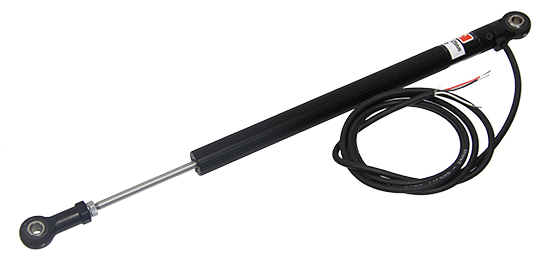Why Linear Potentiometers Are Crucial for Accurate Position Sensing in Robotics
When robotic systems lack precise movement, it disrupts entire operations. Accurate position sensing is essential; it differentiates reliable automation from prone-to-error motion. This is why we trust linear potentiometers. These devices provide reliable, real-time analog feedback, making them essential in industrial robotics. However, the effectiveness of potentiometers can vary. Understanding their proper application can significantly […]
How to Integrate Digikey Components into Your Industrial Automation Setup
Industrial automation focuses on coordination, precision, and reliability at scale. Selecting the right components is essential for ensuring your system responds in milliseconds rather than misfiring under pressure. This is where DigiKey steps in. With an extensive selection of automation-grade parts, rapid sourcing, and integration-ready designs, Digi-Key empowers you to take control of your production flow. However, […]
Understanding Valve Actuators: How They Control Flow and Pressure in Industrial Systems
Effective flow and pressure control are essential for optimizing industrial systems’ performance. Valve actuators are crucial tools that ensure this control, delivering rapid and precise responses while integrating advanced automation. By converting control signals into real-time valve movements, these actuators play a key role in maintaining system safety, stability, and efficiency. This convergence of industrial […]
Why ETI Systems’ Potentiometers are Trusted by Engineers Worldwide
Every component in a control system is important, but few impact accuracy and signal integrity as significantly as potentiometers. Despite their small size, these devices play a crucial role in determining feedback quality, input precision, and operational reliability in real-world applications. Engineers use potentiometers in various fields, from aerospace to industrial automation, and they choose them […]
The Role of Actuators in Improving Manufacturing Automation and Performance
If you’re aiming for better output, tighter tolerances, and fewer errors on the line, start by looking at your Actuators. These small yet powerful devices are the backbone of industrial automation, quietly ensuring that machines move exactly when and how they should. Why Actuators Matter in Modern Manufacturing Actuators are essential components that convert energy, typically […]
Choosing the Right Industrial Joystick for Position Control Applications
Precision control depends greatly on your interface. A high-quality industrial joystick acts as an extension of the operator’s intent. In critical environments such as automation lines, military machinery, and advanced robotics, every input must be both accurate and durable. Choosing the right joystick is essential for accurate signals and fluid movements. If your equipment demands […]
Multi-Turn vs. Single-Turn Potentiometers: Which One Should You Use?
Choosing the right potentiometer can make or break your design. For engineers and designers working on motion systems or control panels, understanding the difference between a multi-turn potentiometer and a single-turn potentiometer is essential. Each type serves a different purpose based on how much precision, resistance range, and control your application requires. In this guide, […]
Single-Turn vs. Multi-Turn Potentiometers: Which Is Right for Your Project?

If you have ever dealt with electronics, you have likely encountered a potentiometer. Potentiometers expand in a wide variety; thus, it can be challenging to choose the right one, especially when there’s a choice between single-turn potentiometers vs. multi-turn potentiometers. What exactly is it, and why should you care whether you choose one from both? […]
Linear vs. Multi-Turn Potentiometers: Differences & Applications

When it comes to precision control in industrial automation and electronic systems, choosing the right potentiometer is crucial. A linear potentiometer provides accurate, straightforward motion control, while a multi-turn potentiometer offers finer adjustments over a broader range. Understanding the differences between these two types and their respective applications ensures optimal performance in position measurement and […]
